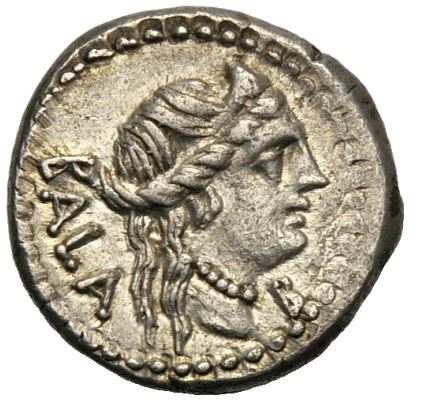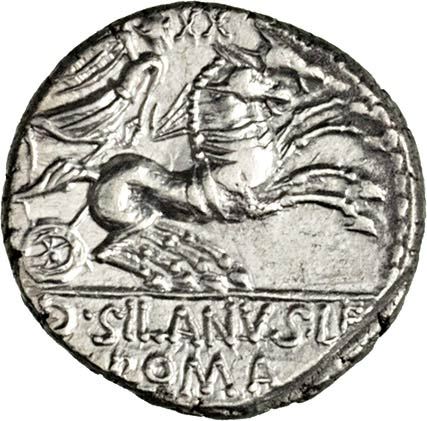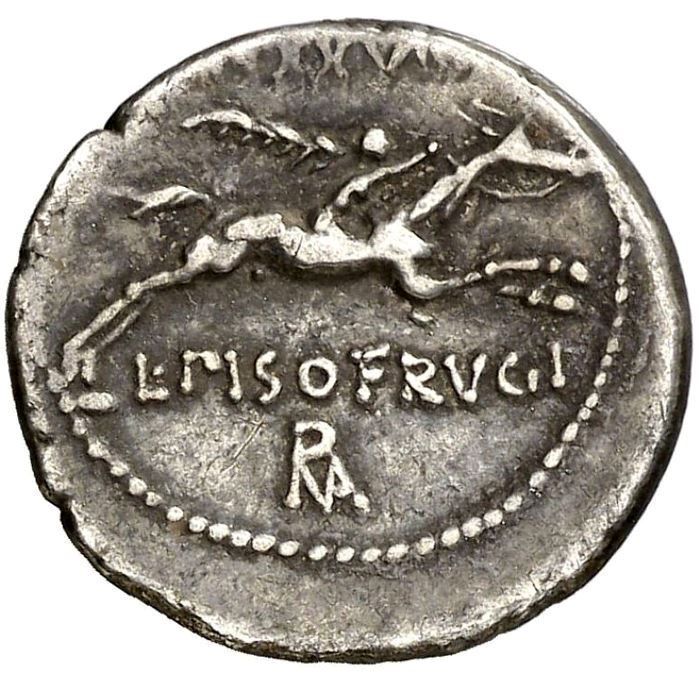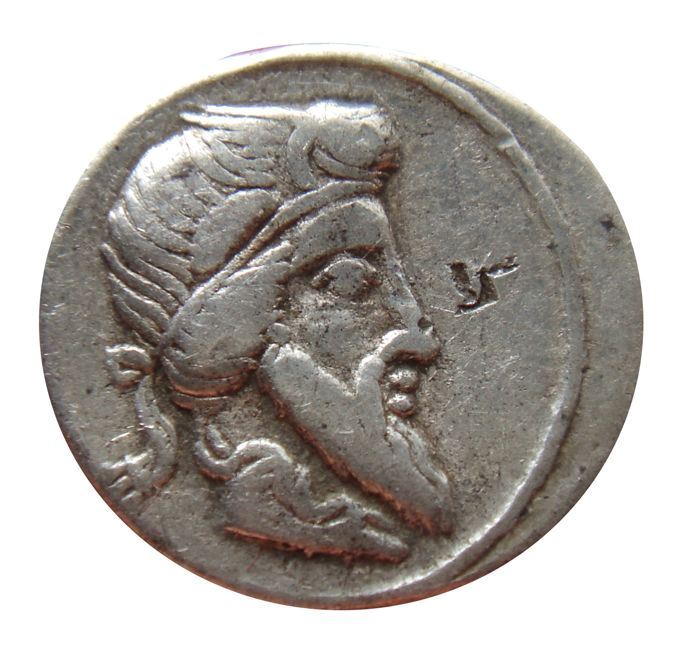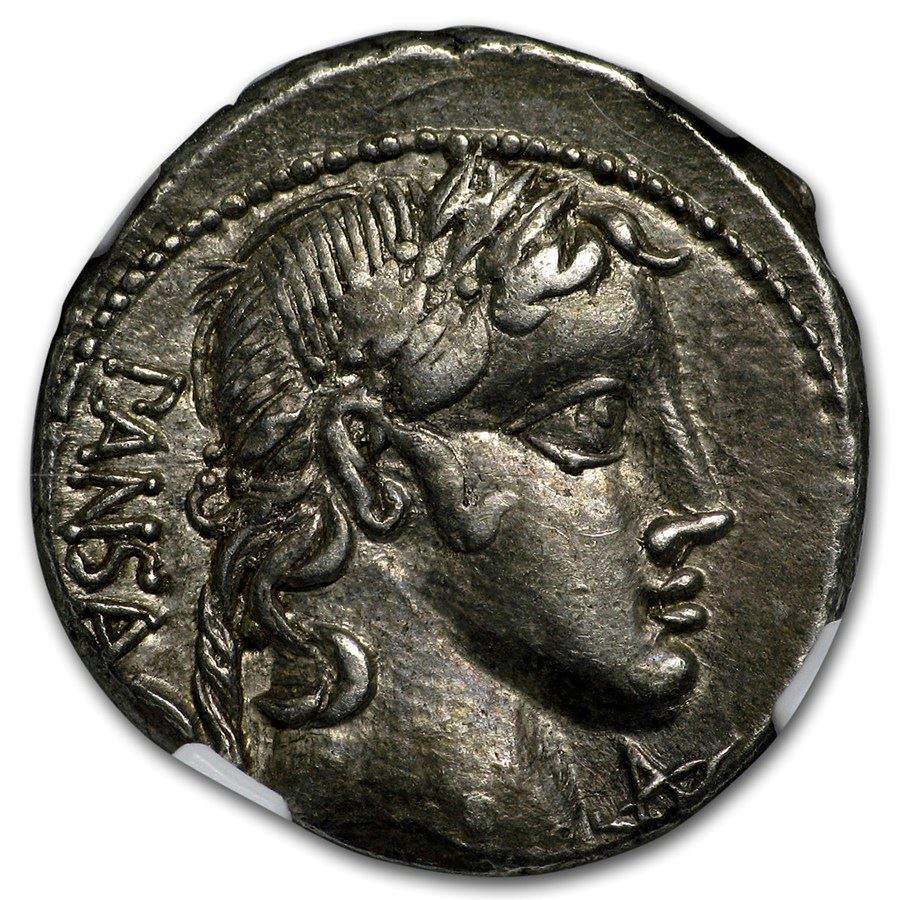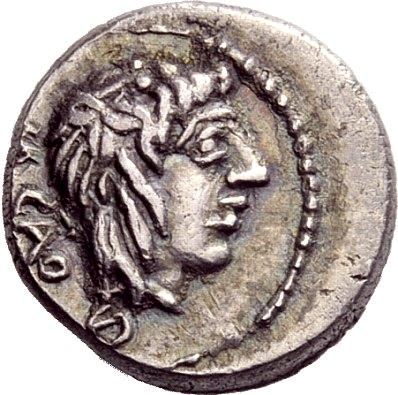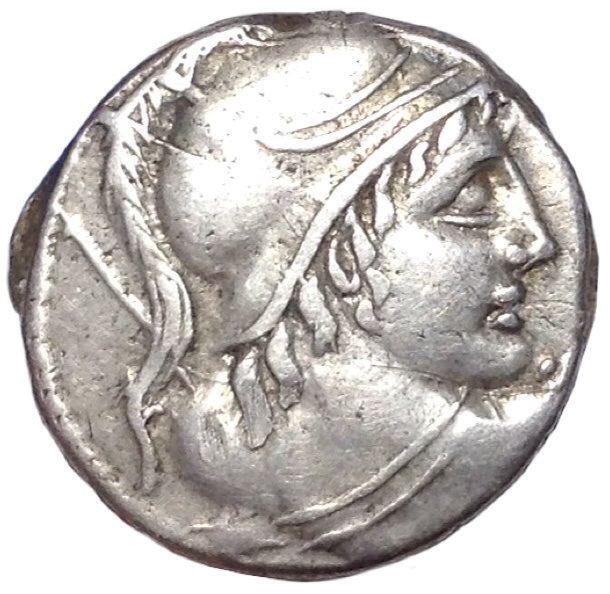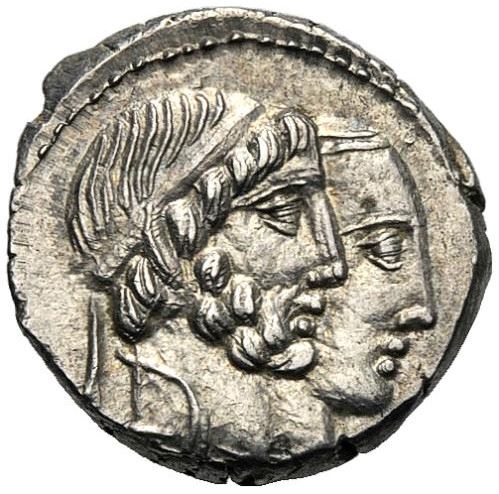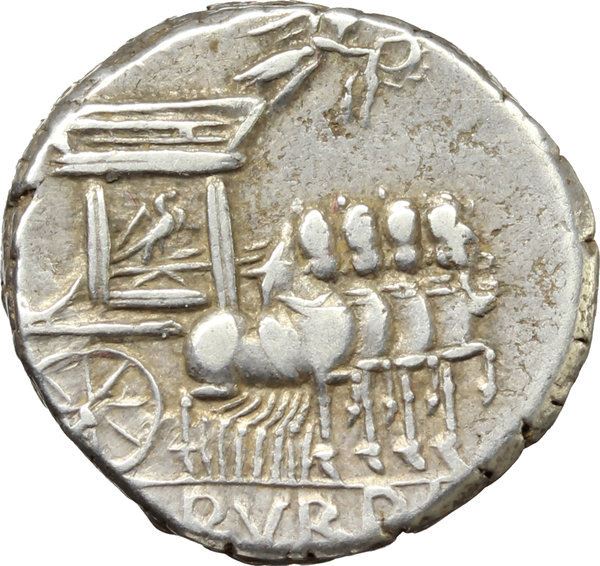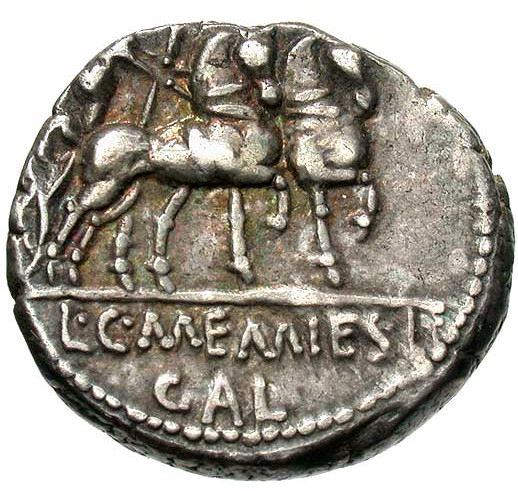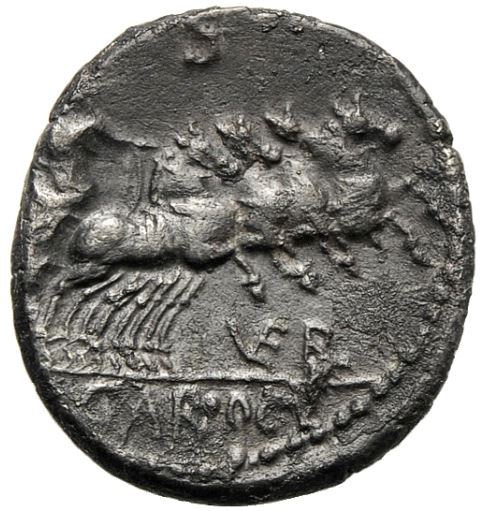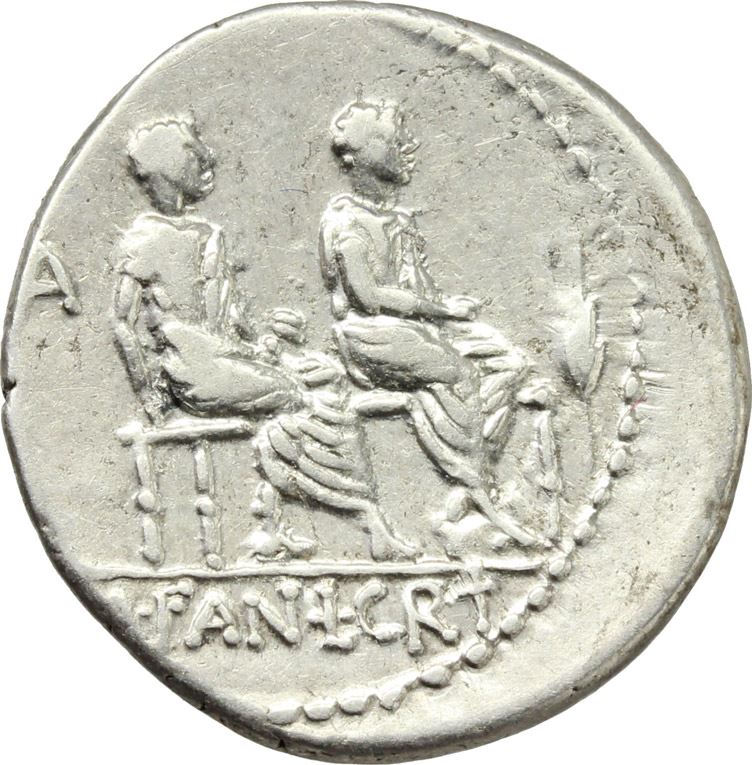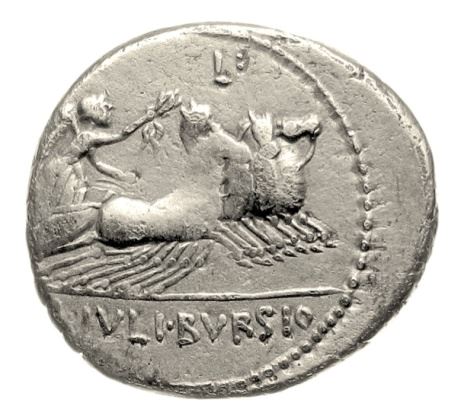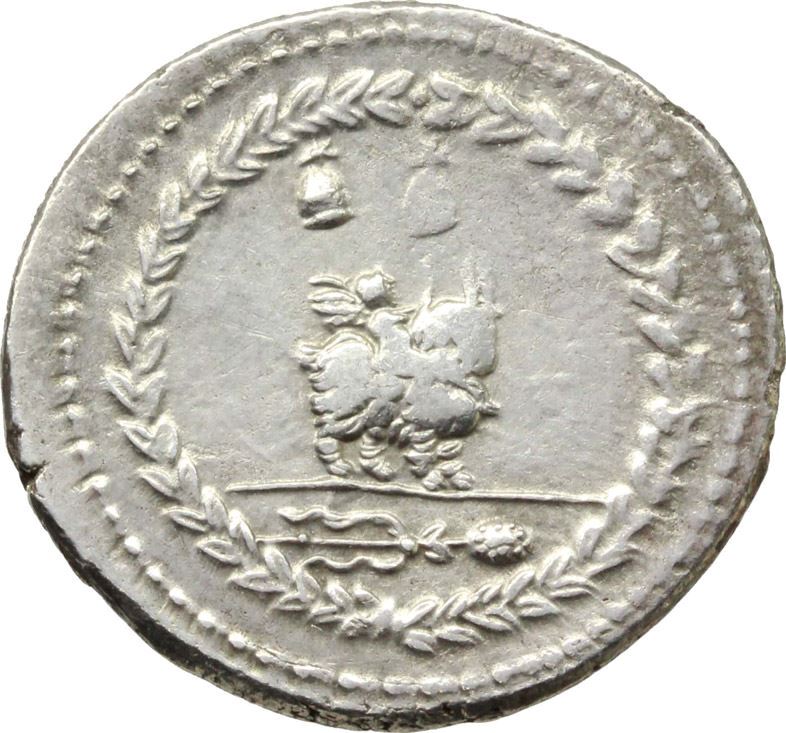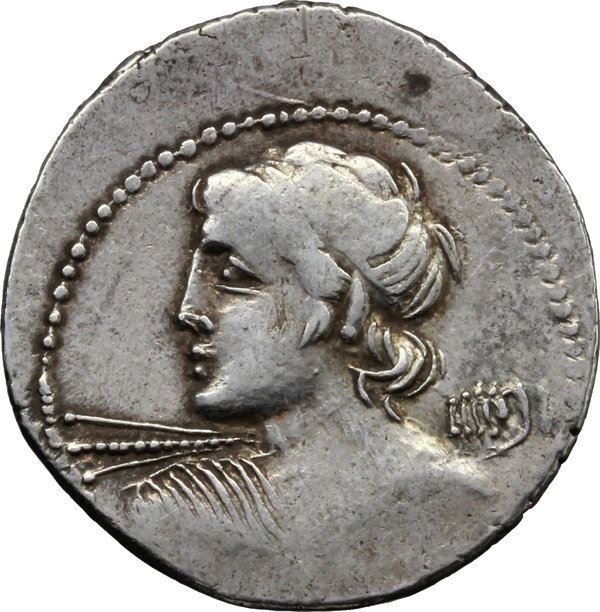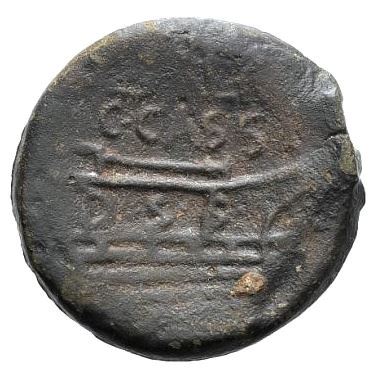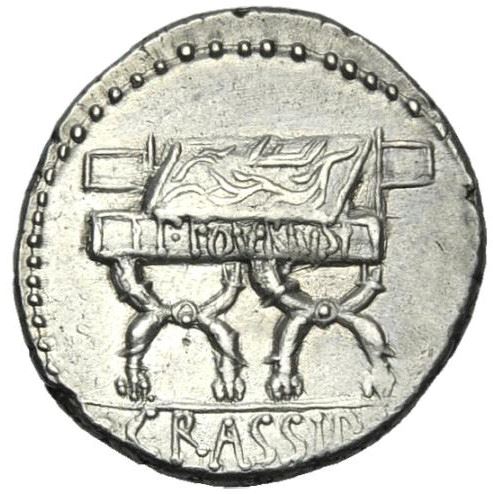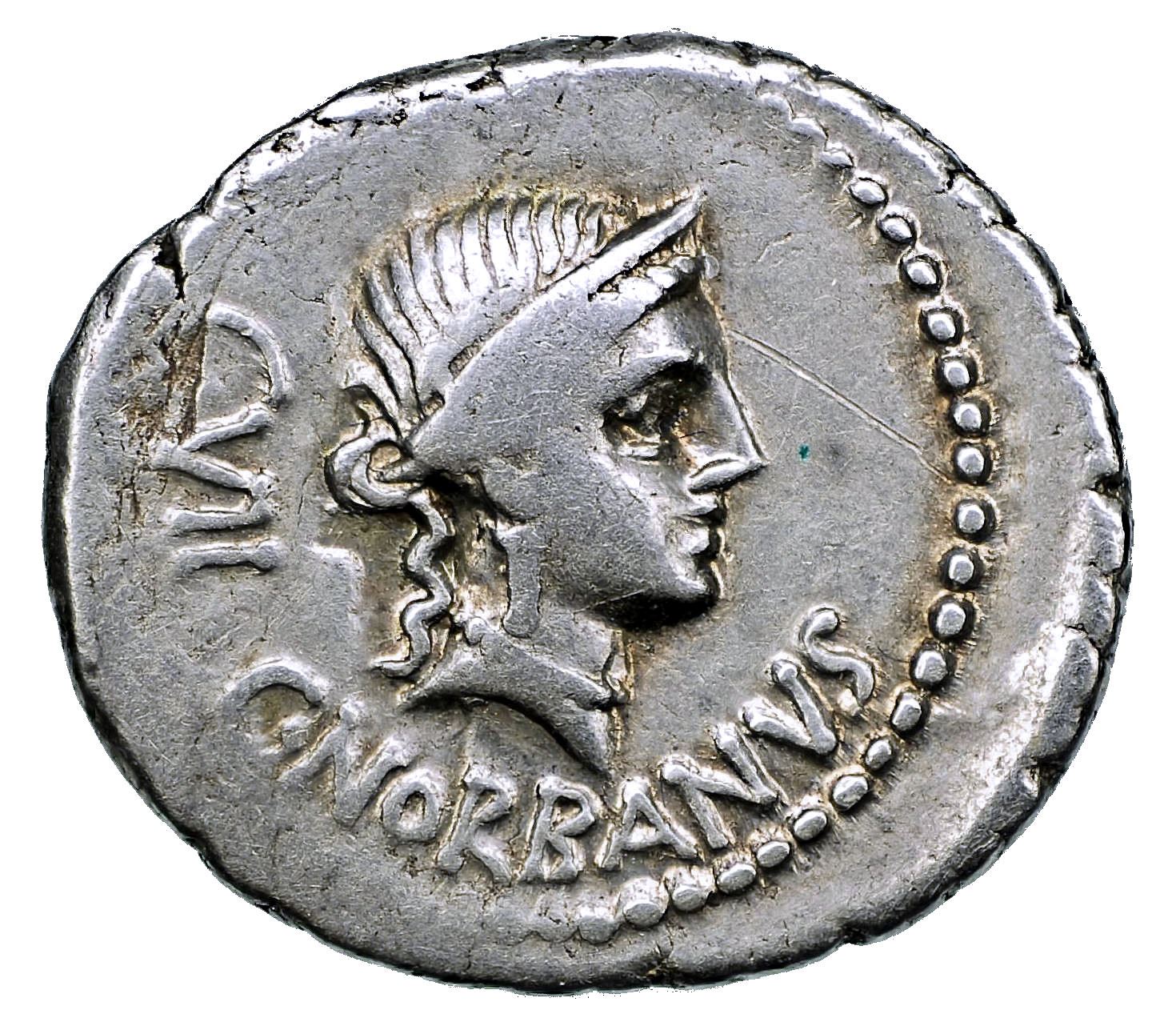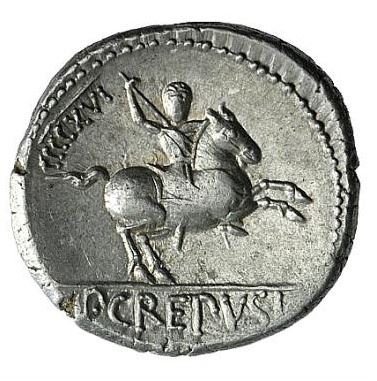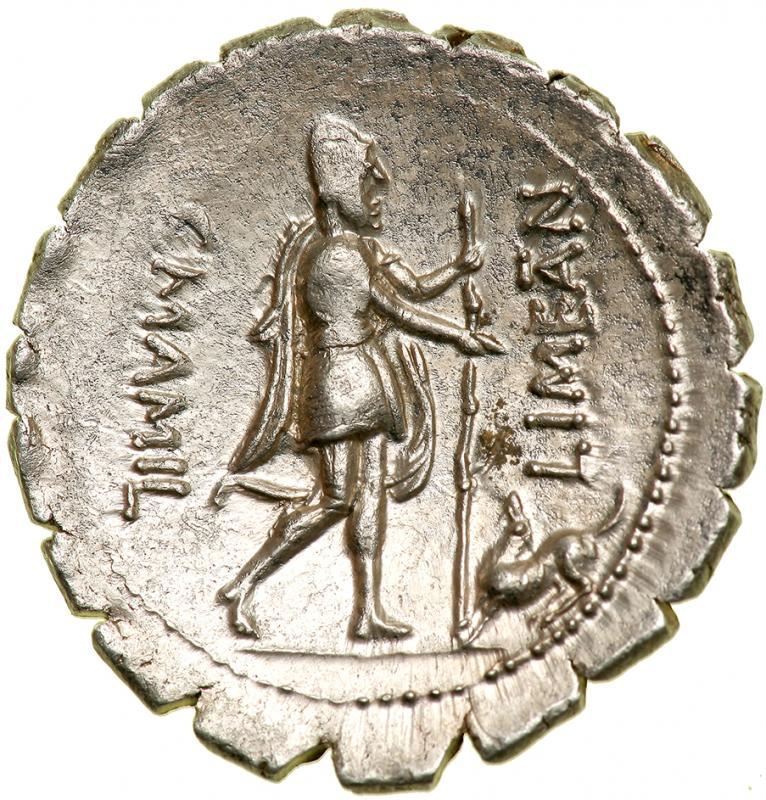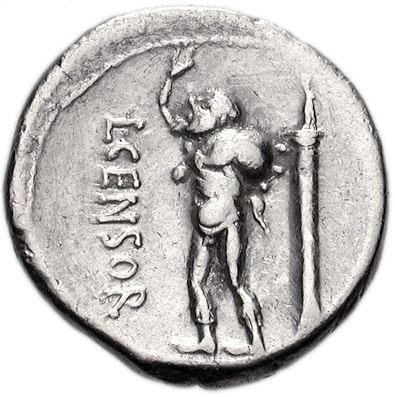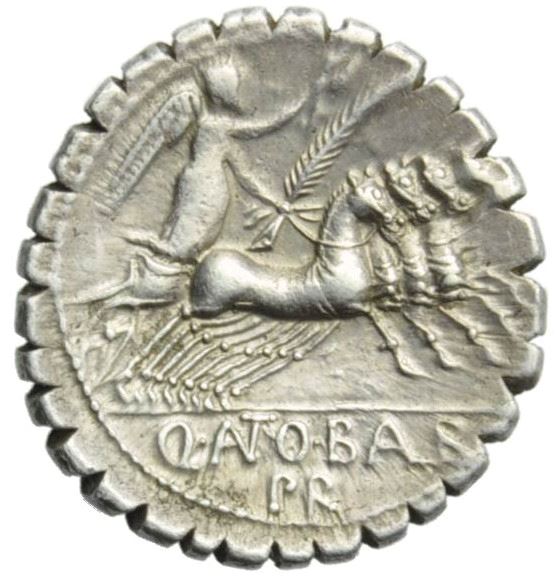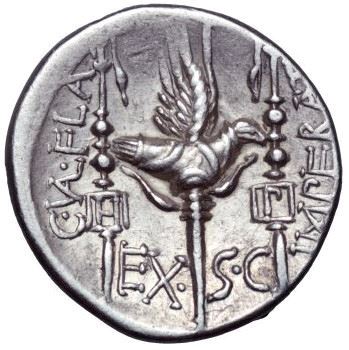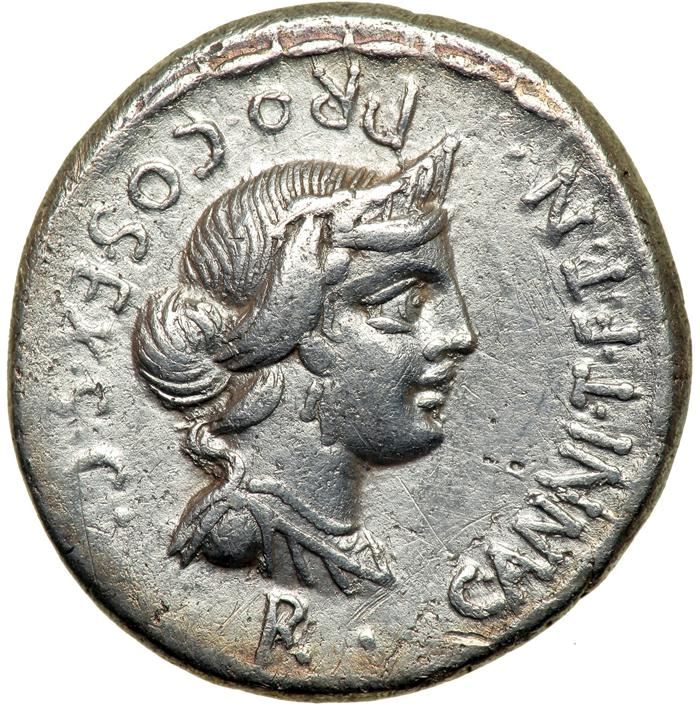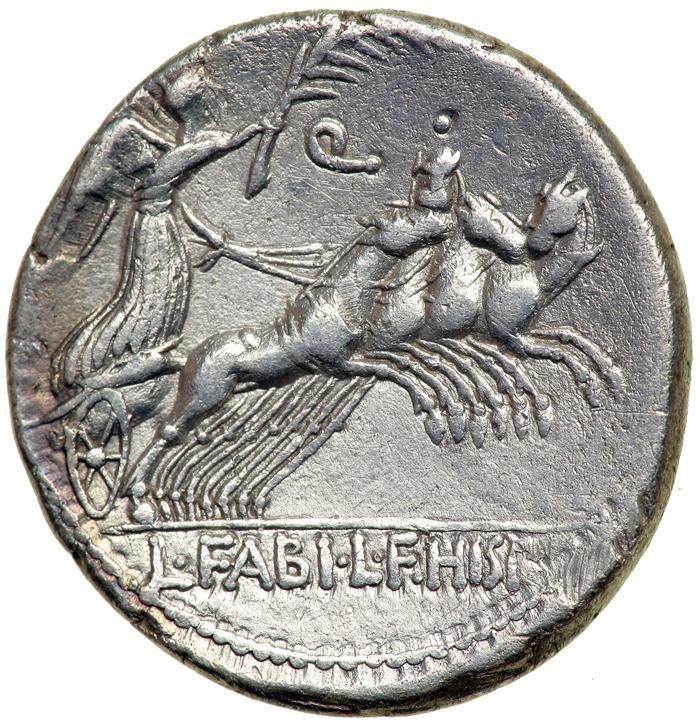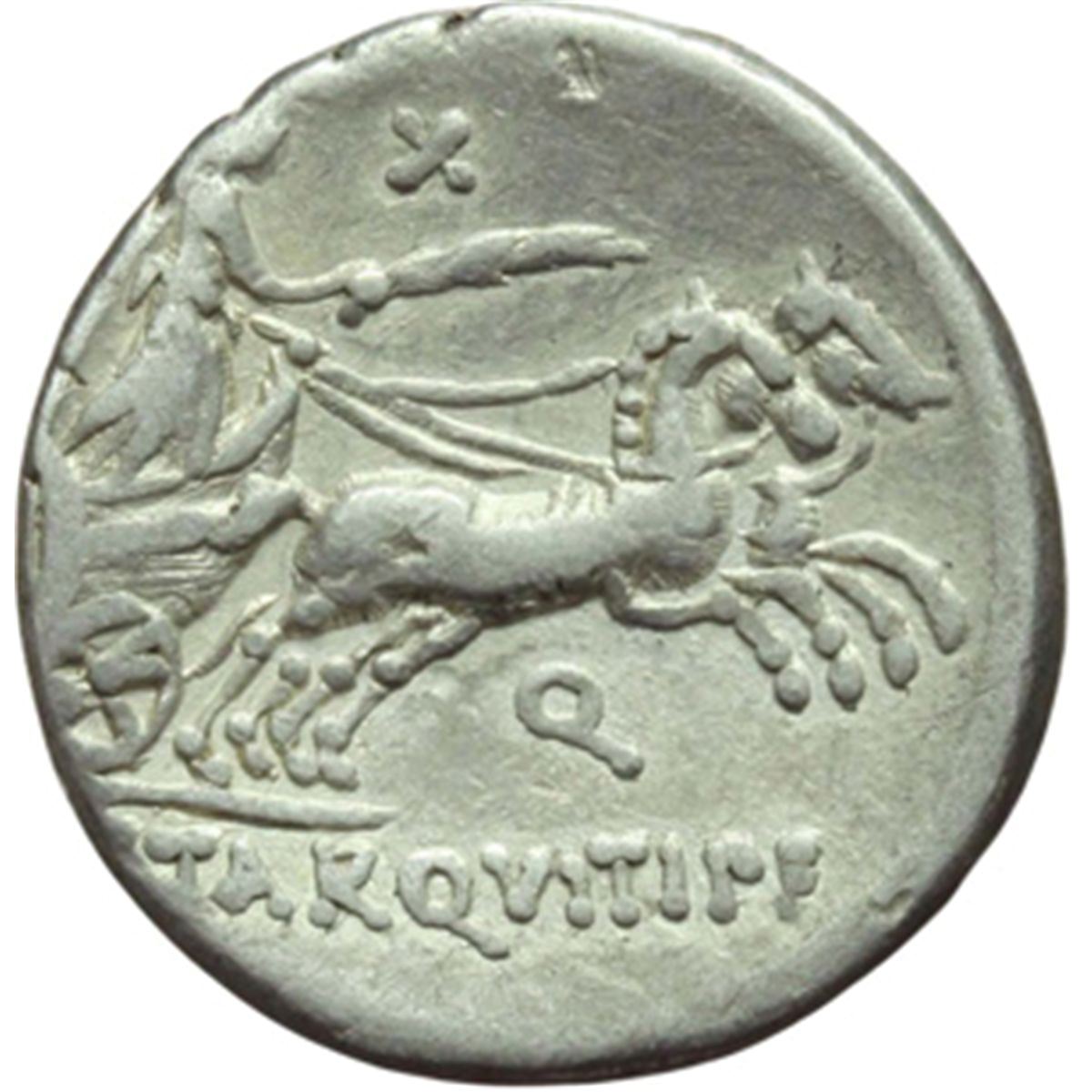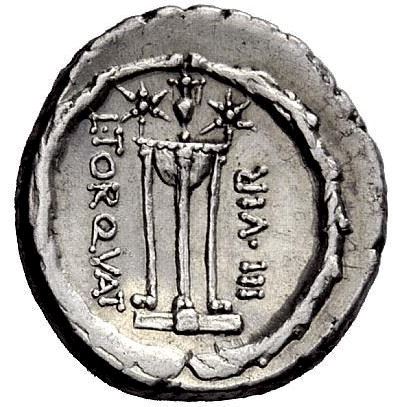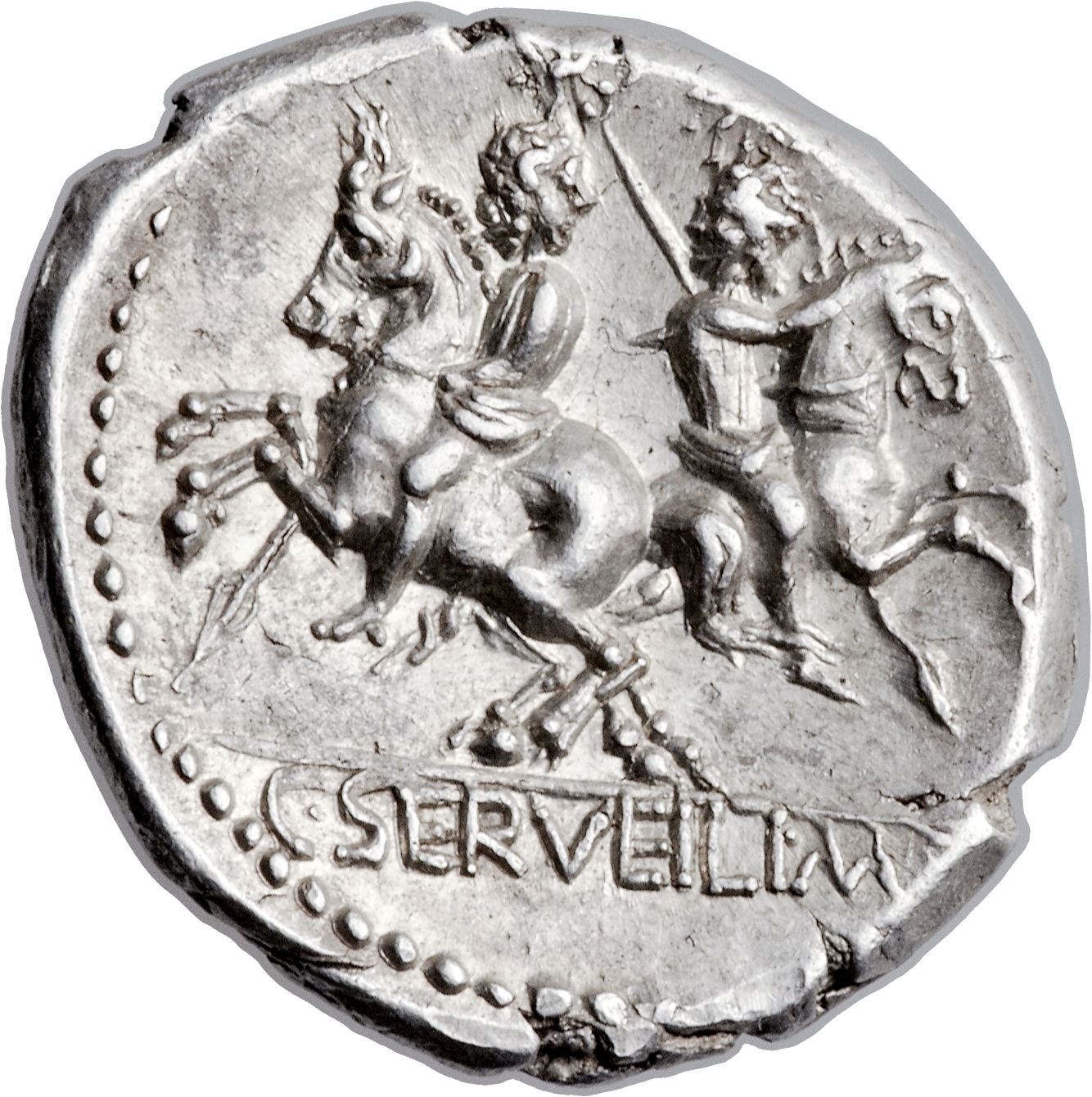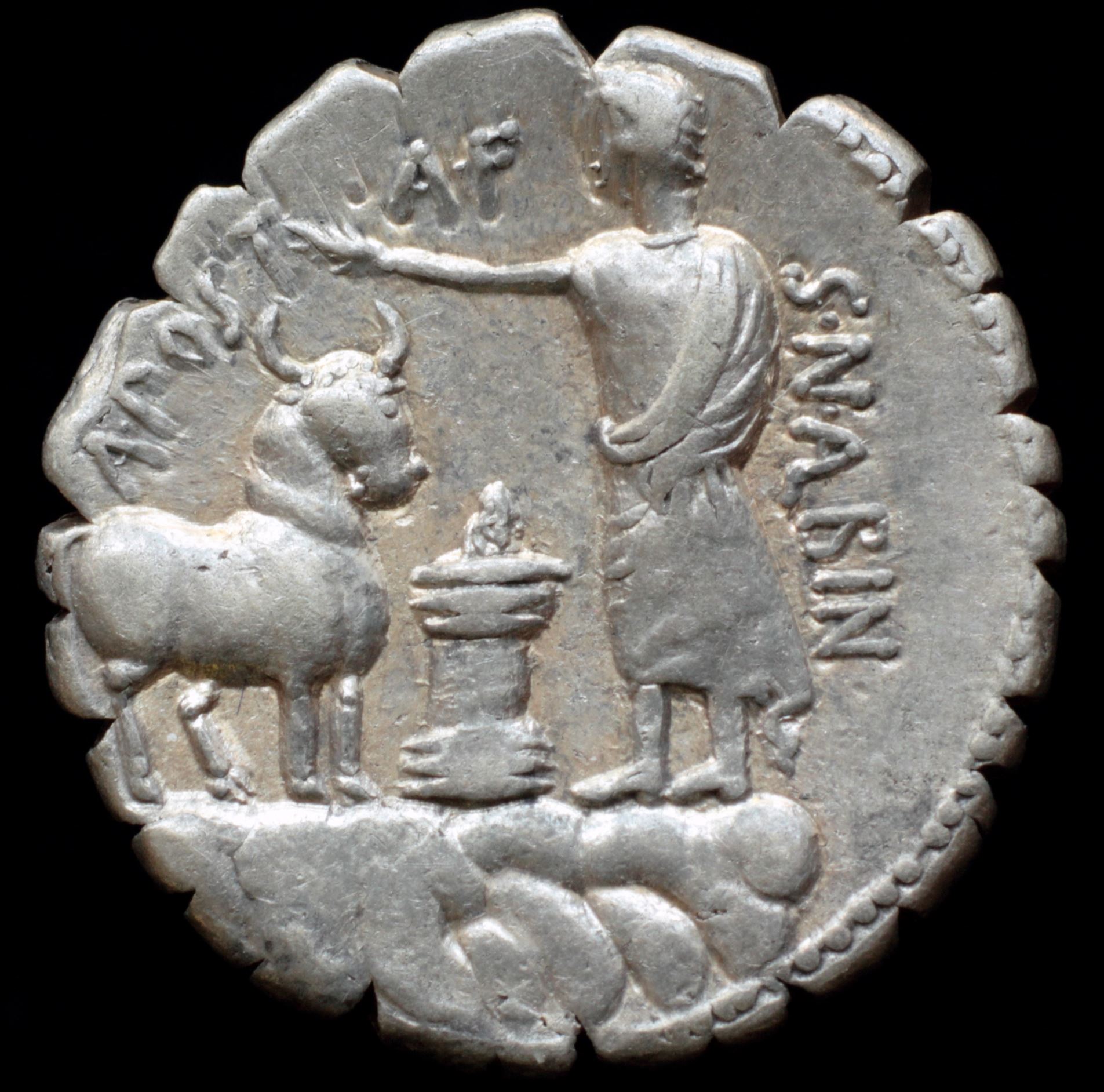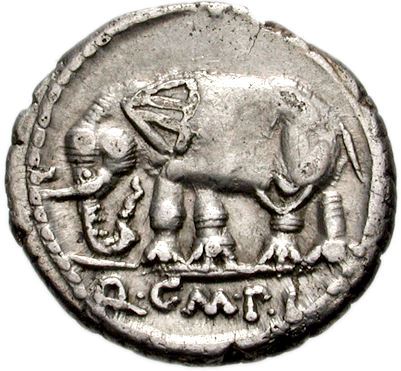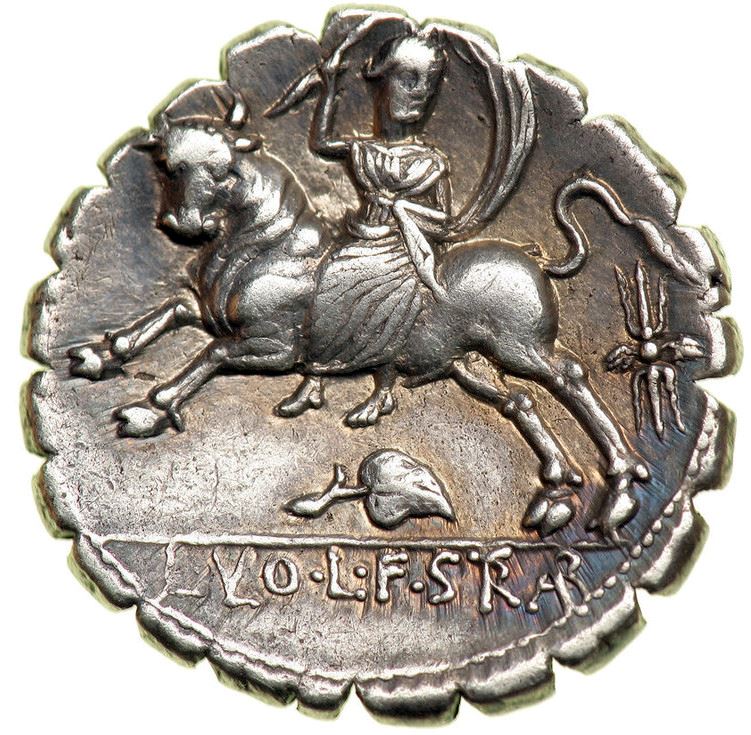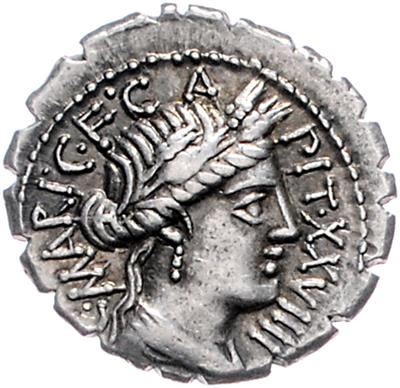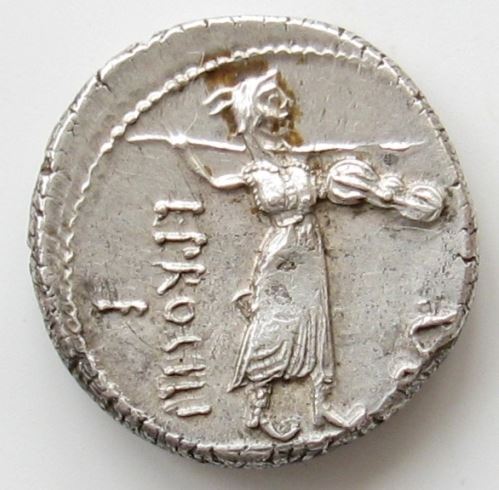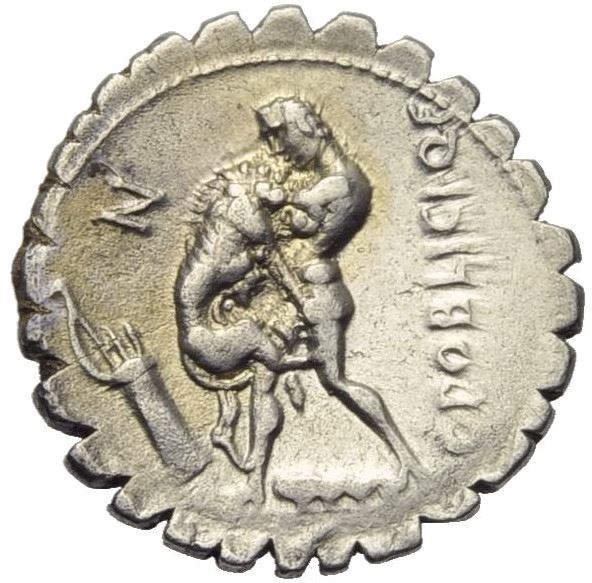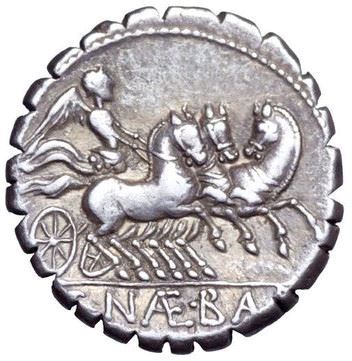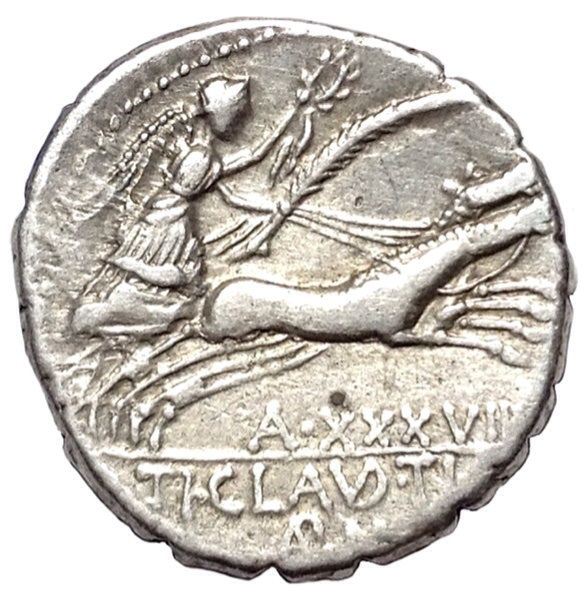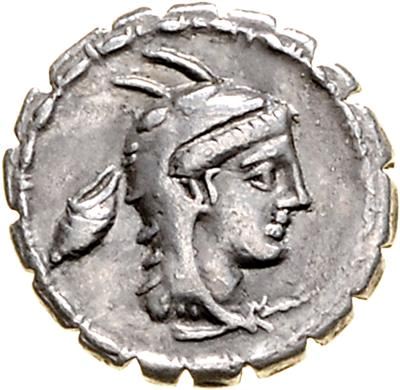Marcus Livius Drusus was Tribunis Plebis in 91 BC when he revived the cause of the Gracchi brothers and proposed to extent citizenship to the Socii - the Italian cities allied to Rome. He was promptly assassinated - and his death sparked the devestating war known as the Social War, which lasted until 88 BC.
From the ashes of that war emerged two strongmen - Sulla and Marius - who each fought to shape the future of the Republic. After defeating Marius, Sulla revived the office of Dictator and enacted a series of constitutional reforms returning power to the Senate at the cost of the Tribunes.
He then dismissed his Dictatorship, returned power to the Consuls, and was elected consul on regular terms in 80 BC, after which he retired. He died the following year.
From the ashes of that war emerged two strongmen - Sulla and Marius - who each fought to shape the future of the Republic. After defeating Marius, Sulla revived the office of Dictator and enacted a series of constitutional reforms returning power to the Senate at the cost of the Tribunes.
He then dismissed his Dictatorship, returned power to the Consuls, and was elected consul on regular terms in 80 BC, after which he retired. He died the following year.
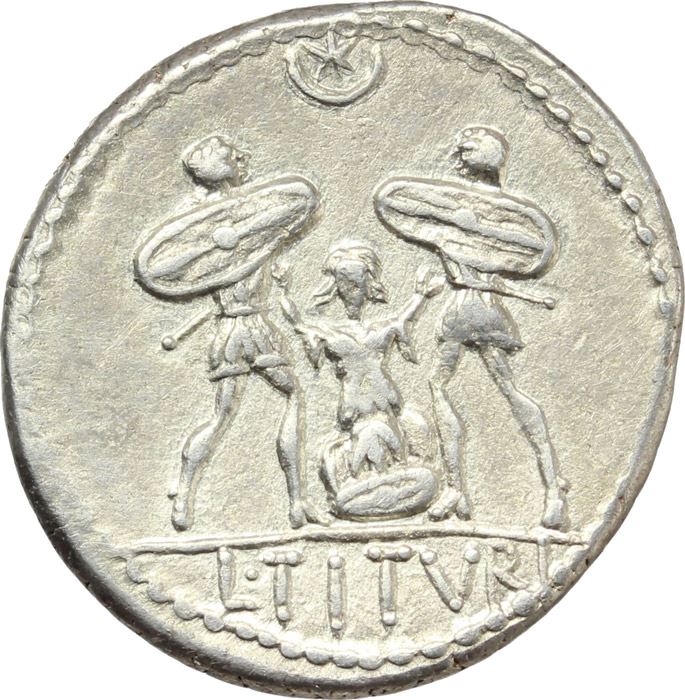
C. Allius Bala was moneyer in 92 BC. He is not otherwise known, and his gens is also unimportant.
D. Junius L.f. Silanus was one of the moneyers for the year 91 BC. He is not otherwise known.
Gens Junia was one of the most celebrated families in Rome. The gens may originally have been patrician. The family was already prominent in the last days of the Roman monarchy.
Gens Junia was one of the most celebrated families in Rome. The gens may originally have been patrician. The family was already prominent in the last days of the Roman monarchy.
Lucius Calpurnius Piso Frugi was a moneyer around 90 BC.
As praetor in 74, he vetoed many of the edicts issued by his colleague Verres, who was famously attacked by Cicero in the speeches known as the Verrines.
As praetor in 74, he vetoed many of the edicts issued by his colleague Verres, who was famously attacked by Cicero in the speeches known as the Verrines.
Q. Titius was one of the moneyers for the year 90 BC - he is not otherwise known.
Gens Titia was a plebeian family in Rome. They are rarely mentioned in the Republican period, and did not rise from obscurity until a very late time. None of the members held the consulship until Marcus Titius in 31 BC.
Titius seems to be a patronymic surname based on the praenomen Titus, which ...
Gens Titia was a plebeian family in Rome. They are rarely mentioned in the Republican period, and did not rise from obscurity until a very late time. None of the members held the consulship until Marcus Titius in 31 BC.
Titius seems to be a patronymic surname based on the praenomen Titus, which ...
C. Vibius Pansa was one of the moneyers for the year 90 BC. He is not otherwise known.
The cognomen 'Pansa' literally means 'splay-footed', so an ancestor probably possessed this trait to a noticable degree.
The cognomen 'Pansa' literally means 'splay-footed', so an ancestor probably possessed this trait to a noticable degree.
M. Porcius Cato was one of the moneyers for the year 89 BC. He is not otherwise known.
Gens Porcia was a plebeian family at Ancient Rome. Its members first appear in history during the third century BC. The first of the gens to achieve the consulship was Marcus Porcius Cato in 195 BC, and from then until imperial times, the Porcii regularly occupied the highest offices of the Roman stat...
Gens Porcia was a plebeian family at Ancient Rome. Its members first appear in history during the third century BC. The first of the gens to achieve the consulship was Marcus Porcius Cato in 195 BC, and from then until imperial times, the Porcii regularly occupied the highest offices of the Roman stat...
L. Titurius Sabinus was one of the moneyers for the year 89 BC.
Under his tenure, a series of coins alluding the the legendary abduction of the Sabine women were struck - soldiers carrying Sabine women, the killing of Tarpeia, obverses featuring King Titus Tatius of the Sabines, etc.
Under his tenure, a series of coins alluding the the legendary abduction of the Sabine women were struck - soldiers carrying Sabine women, the killing of Tarpeia, obverses featuring King Titus Tatius of the Sabines, etc.
Cn. Cornelius Cn.f. Lentulus Clodianus was one of the moneyers for the year 88 BC. He later served as one of two Consuls of the Republic in 72 BC along with Lucius Gellius Publicola.
Closely linked to the family of Pompey, he is noted for being one of the consular generals who led Roman legions against the slave armies of Spartacus in the Third Servile War. He did not fare well, and wa...
Closely linked to the family of Pompey, he is noted for being one of the consular generals who led Roman legions against the slave armies of Spartacus in the Third Servile War. He did not fare well, and wa...
Gaius Marcius Censorinus was a moneyer (monetalis) ca. 88 BC. In 87, as a military tribune or prefect, he commanded the cavalry that attacked and killed the consul Gnaeus Octavius, then brought his head to Cinna; the historian Appian remarks that this was the first time a consul's head was displayed on the Rostra, but unfortunately not the last.
In 82, near the end of the civil war bet...
In 82, near the end of the civil war bet...
M. Fonteius was one of the moneyers for the year 87 BC. He was later Quaestor in 84 BC, and Praetor in 75 BC. Curiously, while we know he was moneyer, no coins of his are known to exist.
Gens Fonteia was a plebeian family at Rome. Members of this gens are first mentioned toward the end of the third century BC; Titus Fonteius was a legate of Publius Cornelius Scipio during the Sec...
Gens Fonteia was a plebeian family at Rome. Members of this gens are first mentioned toward the end of the third century BC; Titus Fonteius was a legate of Publius Cornelius Scipio during the Sec...
L. Rubrius Dossenus was one of the moneyers for the year 87 BC. He is not otherwise known.
Gens Rubria was a plebeian family who is first known from the time of the Gracchi brothers. In the imperial period the Rubrii became more distinguished, and one of them - C. Rubrius Gallus - obtained the consulship in A. D. 101.
The surnames of the Rubrii in the time of the republic a...
Gens Rubria was a plebeian family who is first known from the time of the Gracchi brothers. In the imperial period the Rubrii became more distinguished, and one of them - C. Rubrius Gallus - obtained the consulship in A. D. 101.
The surnames of the Rubrii in the time of the republic a...
L. and C. Memmius L.f. Gal were two brothers who issued coins together, as moneyers for the year 87 BC. They are not otherwise known. They may be the sons of L. Memmius Gal. (q.v.) who issued coins in 106 BC.
Gens Memmia was a plebeian family at Rome. The first member of the gens to achieve prominence was Gaius Memmius Gallus, praetor in 173 BC. From the period of the Jugurthine War to ...
Gens Memmia was a plebeian family at Rome. The first member of the gens to achieve prominence was Gaius Memmius Gallus, praetor in 173 BC. From the period of the Jugurthine War to ...
Caius Gargonius was one of the moneyers for the year 86 BC. He struck coins jointly with his colleagues Ogulnius and M. Vergilius or Verginius, but is not otherwise known.
Gens Gargonia was a minor Roman family during first and second centuries BC. Some of the gens were of equestrian rank, but none appear to have held any curule magistracies.
Gens Gargonia was a minor Roman family during first and second centuries BC. Some of the gens were of equestrian rank, but none appear to have held any curule magistracies.
Ogulnius was one of the moneyers for the year 86 BC. He struck coins jointly with his colleagues C. Gargonius and M. Vergilius or Verginius, but is not otherwise known.
Gens Ogulnia was an ancient plebeian family at Rome. The gens first came to prominence at the beginning of the third century BC, when the brothers Quintus and Gnaeus Ogulnius, tribunes of the plebs, carried a law opening...
Gens Ogulnia was an ancient plebeian family at Rome. The gens first came to prominence at the beginning of the third century BC, when the brothers Quintus and Gnaeus Ogulnius, tribunes of the plebs, carried a law opening...
M. Vergilius or Verginius was one of the moneyers for the year 86 BC. He struck coins jointly with his colleagues C. Gargonius and Ogulnius. He served as Tribunis Plebis in 87 BC.
Gens Verginia or Virginia was a prominent family at Rome, which from an early period was divided into patrician and plebeian branches. The gens was of great antiquity, and frequently filled the highest honors ...
Gens Verginia or Virginia was a prominent family at Rome, which from an early period was divided into patrician and plebeian branches. The gens was of great antiquity, and frequently filled the highest honors ...
Marcus Fannius was plebian aedil in 86 BC, and in that respect struck a joint issue with his colleague L. Critonius.
Gens Fannia was a plebeian family at Rome. No members of this gens are mentioned in Roman history prior to the second century BC, and the first who obtained the consulship was Gaius Fannius Strabo, in BC 161.
The only praenomina associated with the Fannii are G...
Gens Fannia was a plebeian family at Rome. No members of this gens are mentioned in Roman history prior to the second century BC, and the first who obtained the consulship was Gaius Fannius Strabo, in BC 161.
The only praenomina associated with the Fannii are G...
L. Critonius was plebian aedil in 86 BC, and in that respect struck a joint issue with his colleague M. Fannius.
Gens Critonia was a plebeian family at Rome. It is known chiefly from a single individual, Lucius Critonius, who was one of the first aediles cerealis after the institution of that office by Caesar in 44 BC. Critonius had belonged to Caesar's party, but objected to having to ...
Gens Critonia was a plebeian family at Rome. It is known chiefly from a single individual, Lucius Critonius, who was one of the first aediles cerealis after the institution of that office by Caesar in 44 BC. Critonius had belonged to Caesar's party, but objected to having to ...
L. Julius Bursio was one of the moneyers for the year 85 BC, but is not otherwise known.
Gens Julia or Iulia was one of the most ancient patrician families at Ancient Rome. Members of the gens attained the highest dignities of the state in the earliest times of the Republic. The first of the family to obtain the consulship was Gaius Julius Iulus in 489 BC.
The cognomen Bursi...
Gens Julia or Iulia was one of the most ancient patrician families at Ancient Rome. Members of the gens attained the highest dignities of the state in the earliest times of the Republic. The first of the family to obtain the consulship was Gaius Julius Iulus in 489 BC.
The cognomen Bursi...
Manius Fonteius C.f was one of the moneyers for the year 85 BC.
Gens Fonteia was a plebeian family at Rome. Members of this gens are first mentioned toward the end of the third century.
In his oration, Pro Fonteio, Cicero mentions that the Fonteii came originally from Tusculum, of which municipium it was one of the most distinguished families. The Fonteii claimed descent from...
Gens Fonteia was a plebeian family at Rome. Members of this gens are first mentioned toward the end of the third century.
In his oration, Pro Fonteio, Cicero mentions that the Fonteii came originally from Tusculum, of which municipium it was one of the most distinguished families. The Fonteii claimed descent from...
Gaius Licinius Macer was an official and annalist of ancient Rome - and one of the moneyers for the year 84 BC.
He was tribune in 73 BC; Sallust mentions him agitating for the people's rights. He became praetor in 68 BC, but in 66 BC Cicero succeeded in convicting him of bribery and extortion, upon which he committed suicide.
Macer also wrote a history of Rome, in 16 books. T...
He was tribune in 73 BC; Sallust mentions him agitating for the people's rights. He became praetor in 68 BC, but in 66 BC Cicero succeeded in convicting him of bribery and extortion, upon which he committed suicide.
Macer also wrote a history of Rome, in 16 books. T...
Caius Cassius Longinus Varus was one of the moneyers for the year 84 BC, and later served as consul in 73 BC. He may have been the father of the more famous assassin of Caesar, Gaius Cassius Longinus.
Cassius and his colleague passed the lex Terentia Cassia that ordered the state to buy up grain in Sicily and sell it for a low price in Rome. As proconsul of Cisalpine Gaul in 72 BC, duri...
Cassius and his colleague passed the lex Terentia Cassia that ordered the state to buy up grain in Sicily and sell it for a low price in Rome. As proconsul of Cisalpine Gaul in 72 BC, duri...
Livius Salinator was one of the moneyers for the year 84 BC. He struck coins jointly with his colleague for the year, C. Cassius Longinus Varus. He later reappears as the Legate for Sertorius in 81 BC.
Gens Livia was an illustrious plebeian family at ancient Rome. The first of the Livii to obtain the consulship was Marcus Livius Denter in 302 BC, and from his time the Livii supplied th...
Gens Livia was an illustrious plebeian family at ancient Rome. The first of the Livii to obtain the consulship was Marcus Livius Denter in 302 BC, and from his time the Livii supplied th...
P. Furius Crassipes was Curule Aedil in 84 BC, and struck a coin in this respect. He is not otherwise known.
Gens Furia, originally written Fusia, was one of the most ancient and noble patrician houses at Rome. Its members held the highest offices of the state throughout the period of the Roman Republic. The first of the Furii to attain the consulship was Sextus Furius Medullinus in 488...
Gens Furia, originally written Fusia, was one of the most ancient and noble patrician houses at Rome. Its members held the highest offices of the state throughout the period of the Roman Republic. The first of the Furii to attain the consulship was Sextus Furius Medullinus in 488...
Gaius Norbanus Flaccus was a Roman politician and general during the 1st century BC, and one of the moneyers for the year 83 BC.
He was the grandson of Gaius Norbanus, and his family was in opposition to Sulla - and later supported Julius Caesar and then Octavian. Norbanus served as a general during the civils war of the Second Triumvirate.
In reward for his service, Octavia...
He was the grandson of Gaius Norbanus, and his family was in opposition to Sulla - and later supported Julius Caesar and then Octavian. Norbanus served as a general during the civils war of the Second Triumvirate.
In reward for his service, Octavia...
Mn. Juventius Laterensis was one of the moneyers for the year 83 BC. He is presumed to be identical to the Praetor for 51 BC, although his coins say nothing about his praenomen.
Gens Juventia, occasionally written Iubentia, was an ancient plebeian family at Rome. After centuries of obscurity, the gens emerges into history with the appearance of Titus Juventius, a military tribune, in th...
Gens Juventia, occasionally written Iubentia, was an ancient plebeian family at Rome. After centuries of obscurity, the gens emerges into history with the appearance of Titus Juventius, a military tribune, in th...
Lucius Cornelius Sulla Felix, known commonly as Sulla, was a Roman general and statesman. He had the distinction of holding the office of consul twice, as well as reviving the dictatorship.
Sulla was a skillful general, achieving numerous successes in wars against different opponents, both foreign and Roman. He was awarded a grass crown, the most prestigious Roman military honor, durin...
Sulla was a skillful general, achieving numerous successes in wars against different opponents, both foreign and Roman. He was awarded a grass crown, the most prestigious Roman military honor, durin...
P. Crepusius was one of the moneyers for the year 82 BC. He is not otherwise known, and his gens is equally obscure.
C. Mamilius C.f. Limetanus was one of the moneyers for the year 82 BC. He struck serrate denarii at an unknown italian mint, but is otherwise unknown.
Gens Mamilia was a plebeian family at Rome during the period of the Republic. The gens was originally one of the most distinguished families of Tusculum, and indeed in the whole of Latium. It is first mentioned in the time of the Tarquins...
Gens Mamilia was a plebeian family at Rome during the period of the Republic. The gens was originally one of the most distinguished families of Tusculum, and indeed in the whole of Latium. It is first mentioned in the time of the Tarquins...
Lucius Marcius Censorinus was a moneyer ca. 82 BC, and an officer, perhaps prefect of the fleet, in 70.
A denarius was minted by Lucius Marcius Censorinus picturing Apollo and Marsyas the satyr. This coin has attracted several interpretations because of the ambiguity of its symbolism.
The symbolism may refer to the moneyer’s family line, the gens Marcia, who claimed legendary...
A denarius was minted by Lucius Marcius Censorinus picturing Apollo and Marsyas the satyr. This coin has attracted several interpretations because of the ambiguity of its symbolism.
The symbolism may refer to the moneyer’s family line, the gens Marcia, who claimed legendary...
Q. Antonius Balbus was a member of the Marian party, and in 82 BC was appointed praetor of Sardinia.
Before leaving for Sardinia a denarius was struck by order of the Senate. At the time the senate was dominated by members of the Marian party. The denarius was produced to pay the army preparing to resist the return of Sulla. The reverse imagery reflects the expectations of the senate ...
Before leaving for Sardinia a denarius was struck by order of the Senate. At the time the senate was dominated by members of the Marian party. The denarius was produced to pay the army preparing to resist the return of Sulla. The reverse imagery reflects the expectations of the senate ...
Gaius Valerius Flaccus was a consul of the Roman Republic in 93 BC and a provincial governor in the late-90s and throughout the 80s.
He is notable for his balanced stance during the Sullan civil wars, the longevity of his term as governor, and his efforts to extend citizenship to non-Romans.
After Sulla emerged victorious, the senate authorized Flaccus to strike coinage to c...
He is notable for his balanced stance during the Sullan civil wars, the longevity of his term as governor, and his efforts to extend citizenship to non-Romans.
After Sulla emerged victorious, the senate authorized Flaccus to strike coinage to c...
C. Annius T.f. T.n. Luscus was proconsul in Spain in 82 BC, and struck coins in this respect. He struck jointly with L. Fabius Hispaniensis and C. Tarquitius, who are presumed to be his quaestors.
Gens Annia was a plebeian family of considerable antiquity at Rome. The first person of this name whom Livy mentions is the Latin praetor Lucius Annius of Setia, a Roman colony in 340 BC. By t...
Gens Annia was a plebeian family of considerable antiquity at Rome. The first person of this name whom Livy mentions is the Latin praetor Lucius Annius of Setia, a Roman colony in 340 BC. By t...
L. Fabius L.f. Hispaniensis is presumed to have been quaester in Spain in 82 BC, and struck coins in this respect. He struck coins alongside C. Annius Luscus, who is presumed to be his proconsul.
Gens Fabia was one of the most ancient patrician families at Rome. The gens played a prominent part in history soon after the establishment of the Republic, and three brothers were invested wit...
Gens Fabia was one of the most ancient patrician families at Rome. The gens played a prominent part in history soon after the establishment of the Republic, and three brothers were invested wit...
C. Tarquitius is presumed to have been quaester in Spain in 82 BC, and struck coins in this respect. He struck coins alongside C. Annius Luscus, who is presumed to be his proconsul.
Gens Tarquitia was a Roman family of great antiquity. Only one member of the family is known: Lucius Tarquitius Fiaccus, who was magister equitum in BC 458 under the dictator Cincinnatus. The other Tarquitii...
Gens Tarquitia was a Roman family of great antiquity. Only one member of the family is known: Lucius Tarquitius Fiaccus, who was magister equitum in BC 458 under the dictator Cincinnatus. The other Tarquitii...
Lucius Manlius L.f. Torquatus was proquaestor in Asia under Lucius Cornelius Sulla in 84 BC, for whom he issued gold and silver coinage. He returned to Rome with Sulla in 82 BC where he fought at the Battle of the Colline Gate. He was later elected Consul in 65 BC.
Gens Manlia was one of the oldest and noblest patrician houses at Rome, from the earliest days of the Republic until imper...
Gens Manlia was one of the oldest and noblest patrician houses at Rome, from the earliest days of the Republic until imper...
C. Servilius struck coins between 82-80 BC. He is not otherwise known.
Servilia was a patrician family at Rome. The gens was celebrated during the early ages of the Republic, and the names of few gentes appear more frequently at this period in the consular Fasti. It continued to produce men of influence in the state down to the latest times of the Republic, and even in the imperial peri...
Servilia was a patrician family at Rome. The gens was celebrated during the early ages of the Republic, and the names of few gentes appear more frequently at this period in the consular Fasti. It continued to produce men of influence in the state down to the latest times of the Republic, and even in the imperial peri...
A. Postumius A.f. Sp.n. Albinus was one of the moneyers for the year 81 BC. He is not otherwise known.
Gens Postumia was one of the most ancient patrician gentes at Rome. Its members frequently held the highest office of the state, from the banishment of the kings to the downfall of the Republic. The first of the Postumii who obtained the consulship was Publius Postumius Tubertus in 505...
Gens Postumia was one of the most ancient patrician gentes at Rome. Its members frequently held the highest office of the state, from the banishment of the kings to the downfall of the Republic. The first of the Postumii who obtained the consulship was Publius Postumius Tubertus in 505...
Quintus Caecilius Metellus Pius was a pro-Sullan politician and general who was Consul in 80 BC. He was the principal Senatorial commander during the Sertorian War, fighting alongside Pompeius Magnus.
He was given the agnomen (nickname) “Pius” because of his constant and unbending attempts to have his father officially recalled from exile.
During the entire 80s BC, he was sh...
He was given the agnomen (nickname) “Pius” because of his constant and unbending attempts to have his father officially recalled from exile.
During the entire 80s BC, he was sh...
L. Voluminus Strabo was one of the moneyers of the year 81 BC. He may be identical to the L. Volumnius L.f. Ani. on the consilium of Cn. Pompeius Strabo at Asculum.
Gens Volumnia was an old patrician family of Etruscan origin. It is attested from the seventh century BC. A Publius Volumnius Gallus , who covered the consulate as early as 461 BC
Despite its ancient origins, this...
Gens Volumnia was an old patrician family of Etruscan origin. It is attested from the seventh century BC. A Publius Volumnius Gallus , who covered the consulate as early as 461 BC
Despite its ancient origins, this...
C. Marius C.f. Capito was one of the moneyrs for the year 81 BC. He is not otherwise known.
The gens Maria was a plebeian family of Rome. Its most celebrated member was Gaius Marius, one of the greatest generals of antiquity, and seven times consul.
The cognomen Capito is believed to mean 'big-headed', so presumably this body trait was obvious in an ancestor at some point.
The gens Maria was a plebeian family of Rome. Its most celebrated member was Gaius Marius, one of the greatest generals of antiquity, and seven times consul.
The cognomen Capito is believed to mean 'big-headed', so presumably this body trait was obvious in an ancestor at some point.
L. Procilius Filius was one of the moneyers of the year 80 BC. He was made senator in 56 BC.
Gens Procilia, sometimes written Procillia, was a minor plebeian family at ancient Rome. Members of this gens are first mentioned during the final century of the Republic, but few of them obtained any position of importance in the Roman state, and they are best known as a result of the historian...
Gens Procilia, sometimes written Procillia, was a minor plebeian family at ancient Rome. Members of this gens are first mentioned during the final century of the Republic, but few of them obtained any position of importance in the Roman state, and they are best known as a result of the historian...
C. Publicius Q.f. was one of the moneyers of the year 80 BC. He is not otherwise known.
Gens Publicia, occasionally found as Poblicia or Poplicia, was a plebeian family at ancient Rome. Members of this gens are first mentioned in history during the period following the First Punic War, and the only one to achieve the consulship was Marcus Publicius Malleolus in 232 BC.
The no...
Gens Publicia, occasionally found as Poblicia or Poplicia, was a plebeian family at ancient Rome. Members of this gens are first mentioned in history during the period following the First Punic War, and the only one to achieve the consulship was Marcus Publicius Malleolus in 232 BC.
The no...
A. Manlius A.f. Q.n. was one of the moneyers of the year 80 BC. He is not otherwise known.
Gens Manlia was one of the oldest and noblest patrician houses at Rome, from the earliest days of the Republic until imperial times. The first of the gens to obtain the consulship was Gnaeus Manlius Cincinnatus, consul in 480 BC, and for nearly five centuries its members frequently held the most i...
Gens Manlia was one of the oldest and noblest patrician houses at Rome, from the earliest days of the Republic until imperial times. The first of the gens to obtain the consulship was Gnaeus Manlius Cincinnatus, consul in 480 BC, and for nearly five centuries its members frequently held the most i...
C. Naevius Balbus. was one of the moneyers of the year 79 BC. He is not otherwise known.
Gens Naevia, occasionally written Navia, was a plebeian or patrician family at Rome. Members of this gens are first mentioned at the time of the Second Punic War, but the first of the Naevii to obtain the consulship was Lucius Naevius Surdinus, in AD 30.
In the time of the Republic, the p...
Gens Naevia, occasionally written Navia, was a plebeian or patrician family at Rome. Members of this gens are first mentioned at the time of the Second Punic War, but the first of the Naevii to obtain the consulship was Lucius Naevius Surdinus, in AD 30.
In the time of the Republic, the p...
Tiberius Claudius Nero was one of the moneyers for the year 79 BC.
He was Praetor before 63 BC. His coins are inscribed TI·CLAVD·TI·F AP·N.
He should not be confused with the Emperor Tiberius, who bore the same name.
He was Praetor before 63 BC. His coins are inscribed TI·CLAVD·TI·F AP·N.
He should not be confused with the Emperor Tiberius, who bore the same name.
L. Papius was one of the moneyers for the year 79 BC. He is not otherwise known, but was probably not a populares or an opponent of Sulla, or he would not have been appointed moneyer.
He was probably the father of the moneyer L. Papius who became censor under Caesar.
The gens Papia was a plebeian family at Rome. Members of this gens are first mentioned at the time of the Samn...
He was probably the father of the moneyer L. Papius who became censor under Caesar.
The gens Papia was a plebeian family at Rome. Members of this gens are first mentioned at the time of the Samn...

